On October 28, 2017, responding to the call for strengthening the health serviceson the primary level and promoting Sino-German academic exchanges,theGrass-Roots Health Care System DevelopmentForum:Sino-German Perspective was successfully convened intheEastLakeHotel in HubeiProvince.This Forum has gainedthe supportfromthe ChineseRuralHealthAssociation, the ChineseHealthCareAssociation and the ChineseCommunityHealthAssociation.
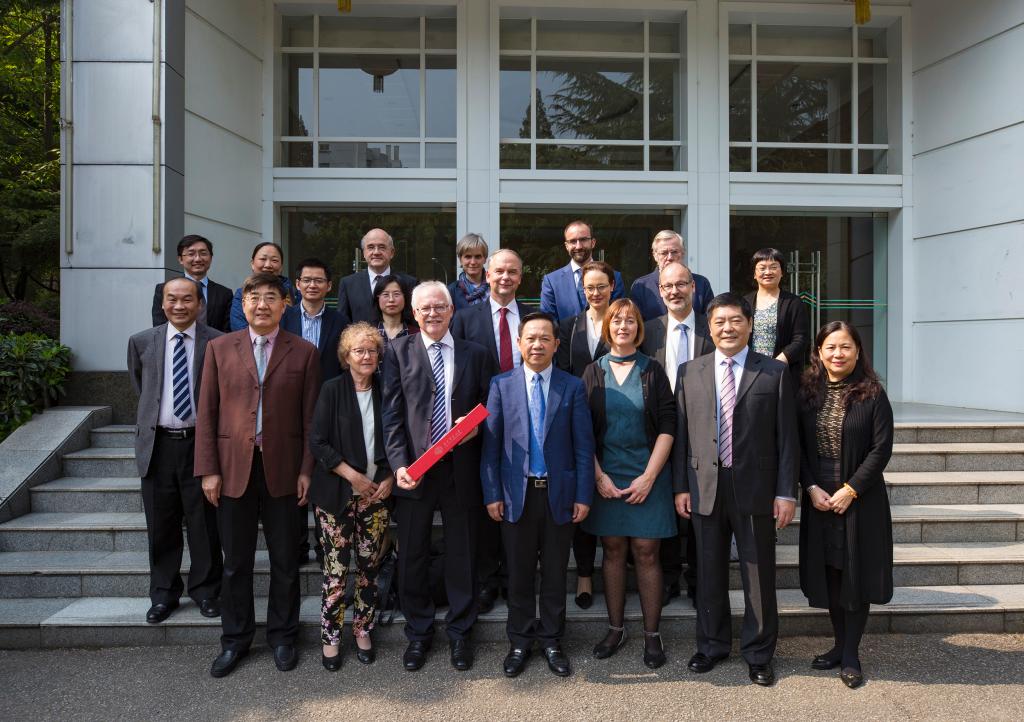
Nineforeignexperts and officialsfromWHO,University of Greifswald,HumboldtUniversity,University of Muenster and the EconomicLabor andHealth Ministry in Mecklenburg inGermanyattended the forum. Meanwhile, there are domestic experts and officials fromWuhanUniversity, ShandongUniversity, SichuanUniversity, BeijingUniversity ofTraditional ChineseMedicine,Huazhong University of Science and Technology, National Health and Family Planning Commission (NHFPC),Hubeiand Henan Provincial Health and Family Planning Bureau,a total of more than 100 national experts and government officialsattended the forum.
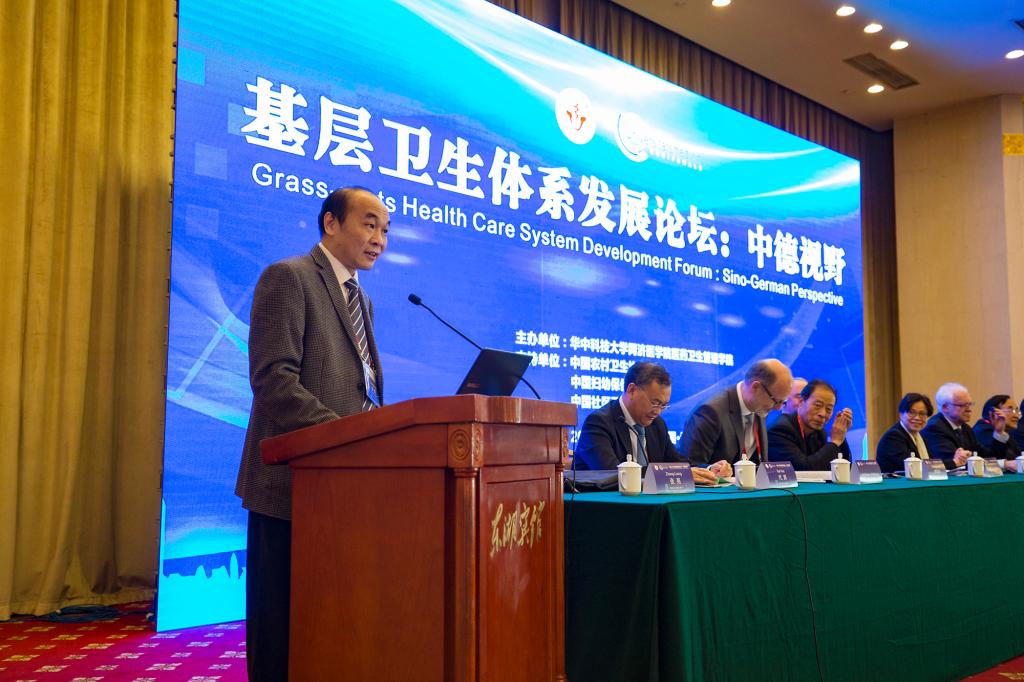
Prof.ZHANGLiangfrom HUST, theChairman of the Forum, presided over the opening ceremony.Firstly,Prof.Max Peter Baur,Dean of theMedical College of University of Greifswald, introducedthe unique prospects ofmanyimportantsocial issues in community medicine andgrass-roots medicare in Germany.Ms. DENGJingping,DeputyParty Secretary of TongjiMedicalCollege,delivered a welcome speech to allguests She highly praised the School of Health and Medicine Management of TMC for its remarkable contributionsto theresearch and achievements transformationin the field of grass-rootshealthcareservice. Finally,Prof.CHENZiquan,President of the ChineseChildren'sHealthCareAssociation,Prof.ZHUBaoduo,Chairman of the ChineseRuralHealthAssociation,all gave a speech to fully affirm the significance of the forum in terms of theprogress and achievements in the historyandinternational experience.
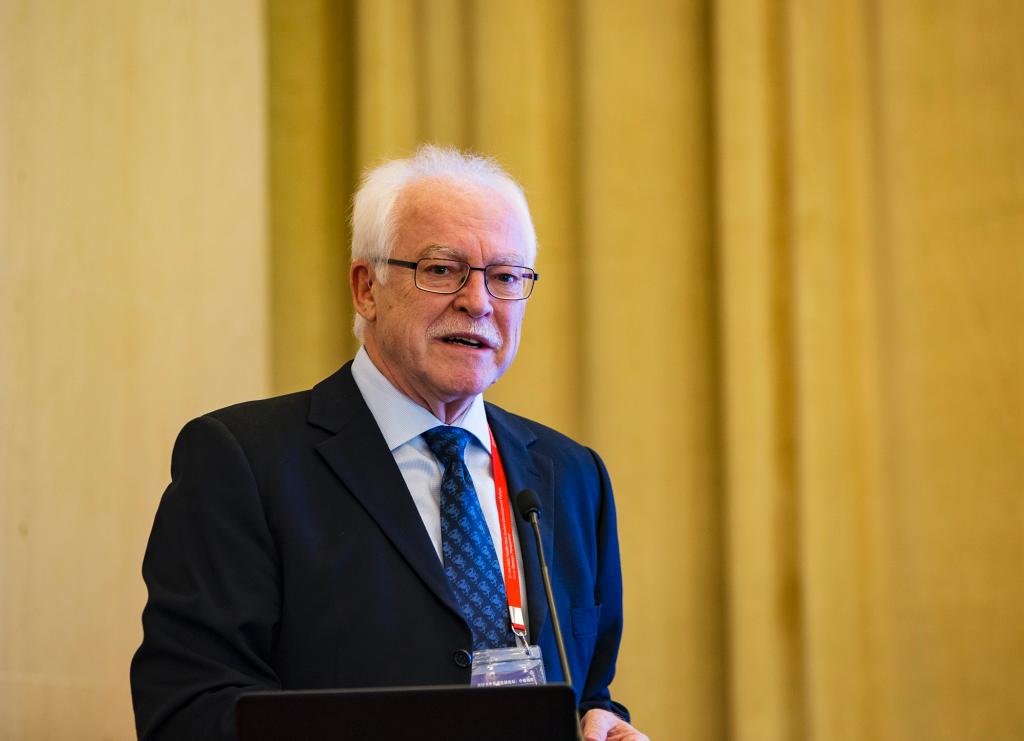
The forum is composed ofkeynote speeches on 3 topics and 2expertspanel discussion.The firsttopicwas chairedbyProf.DaiTao,DeputyDirector of theNational Institute ofHealthScience andTechnologyDevelopmentResearchCenter.Prof.Wolfgang Hoffmann, Director of theCommunityMedicare ResearchInstituteof University of Greifswaldfirstlymade a report titled“TheChallenges ofRuralRegions–ABlueprint forValue-basedHealthcare””. He illustratedthe effectiveness of the medicareservicesonintervention, monitoring and evaluation of thehealthserviceswithina specific populationbased on regional values inGermany. Then, Dr. CHENKai, Director of theRuralHealthDivisionofNHFPC,made a report titled“TheConstruction andDevelopment of theRuralHealthSystem in China”, in which the basic situation, challenges and developmentguidelineof the rural health systemin China wereintroduced.In the end,Prof.CHENBowenthe, theVicePresident andSecretary-General of the ChineseCommunityHealthAssociation, introduced the history and development potential of the Chinese community health services.
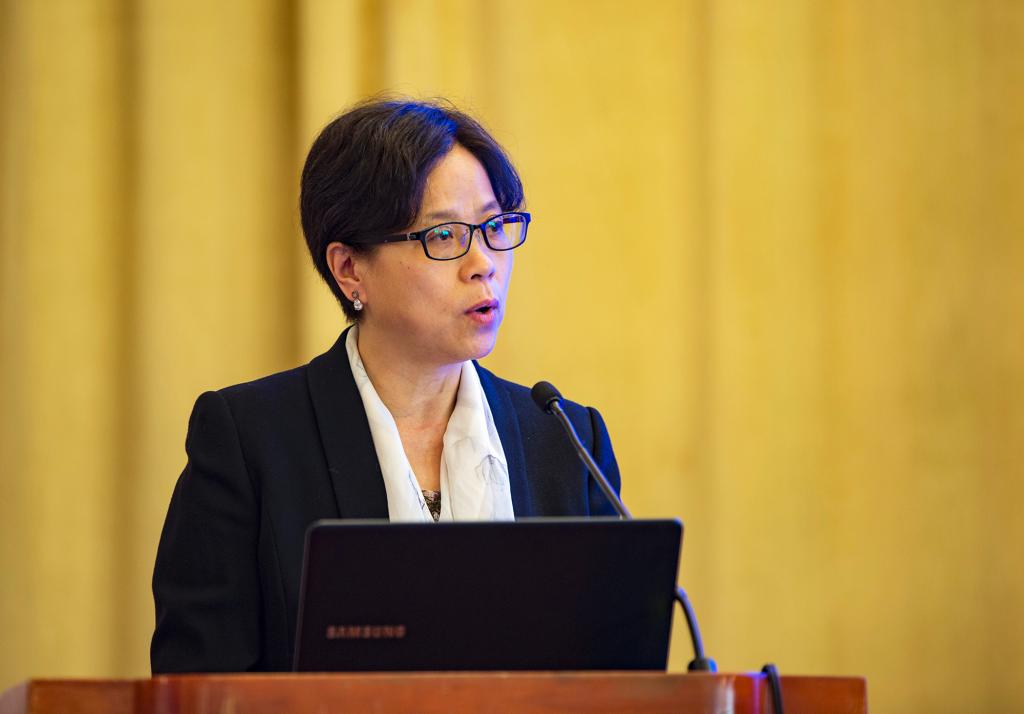
The secondtopic was chairedbyProf.WolfgangHoffmann.Prof.NeeltjeVanDen Berg, Deputy Director oftheCommunityMedicare ResearchInstituteof University of Greifswald,made a report first titled“ImplementingE-Health –AnecessaryPrerequisite toMakeRegionalHealthcarePossible”. Heaffirmed the valuesof the systemicconstruction of regional healthcare from the macro population distributionin Germany.Using the examples inpediatricsand mental illness, thisreportanalyzedtheadvantages and challenges of long-distance medicareinabovesystem.Then,Porf.Steffen Flessa, Vice Rector from University of Greifswald, gave a speech titled“TheEconomy ofDistance toCare –Convenience vs.Efficiency”, in which heanalyzedthe function of distanceinsupply and demandsrelationsof medicare and pointed out theexisting problems and feasible countermeasuresinsupplyside based on the evidenceof geographic accessibility.Later,Prof.KONGJunhui,ViceDeanofthe School of Management ofBeijingUniversity ofTraditional ChineseMedicine, introduced theteachingmodelof master-to-disciples successionin the field of traditional Chinese medicine, andstated moreattentionbe givento the training ofgeneral doctors ongrass-roots medicare.In the end,Prof.Jens-UweNiehofffromHumboldtUniversity,made a report titled“PioneeringRuralHealthcareManagement –SomeThought on Milton Roemer”,which introduced Prof.Milton Roemer,a pioneering expert and scholar inresearchof grass-rootshealthcareservices.
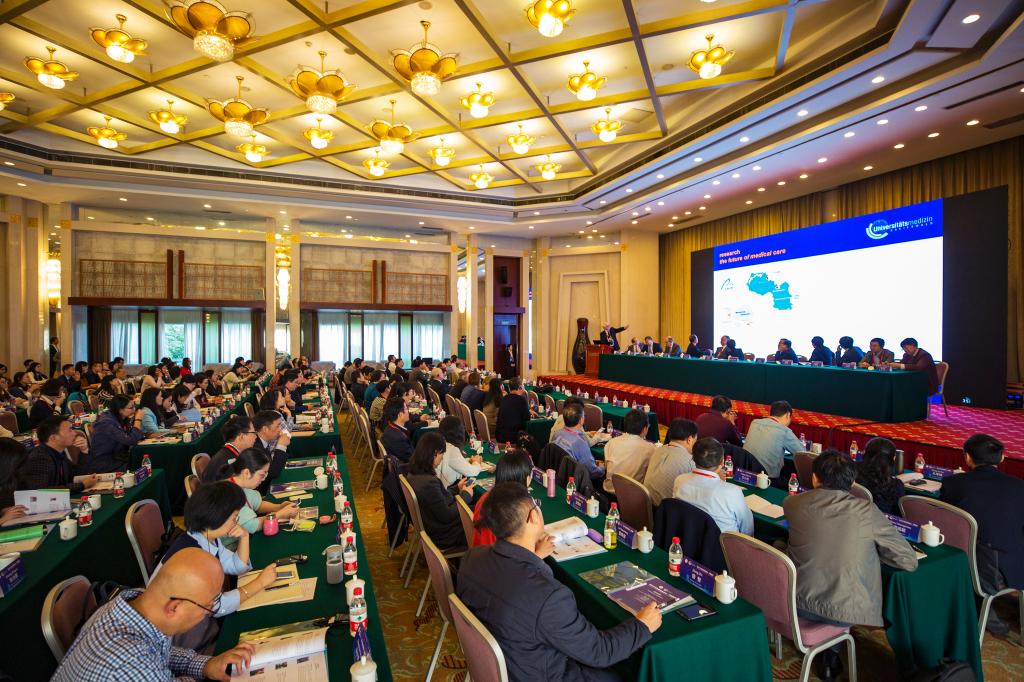
The third topic was chaired by Prof.Neeltje van den Breg. Firstly, Prof.Klaus Bergerfrom University of Muenster made a report tilted“InnovativeMeasures toControlRegionalPatientPathways:TheExample of Stroke”, in which he pointed out Germany's stroke management chain has been already linked with the cell phone app, which significantly improved the stroke patient survival rate and shorten the treatment time. Prof. ZHANG Tuohong, project officer from the Office of Health Security and Health System of WHO, shared the framework of the WHO's upcoming resolution, and pointed out the necessity to realize of integrated medicine in pursuit of people-oriented health-care services. Then, MadamUrsula Classβenfrom the EconomicLabor andHealth Ministry in Mecklenburg gave a speech titled“SecuringHealthcare in Mecklenburg Western Pomerania –CurrentPrioritySetting forHealthcarePlanning andOtherActivites”, in which she illustrated the government’s commitment and obligation in medicare services, and major challenges and lessons draw by her office. At last, Ms.Marie le ClaireUrsula Classβen, the CFO of University of Greifswald, introduced her university’s transformation process to the provider of modern regional medical services and its database management.
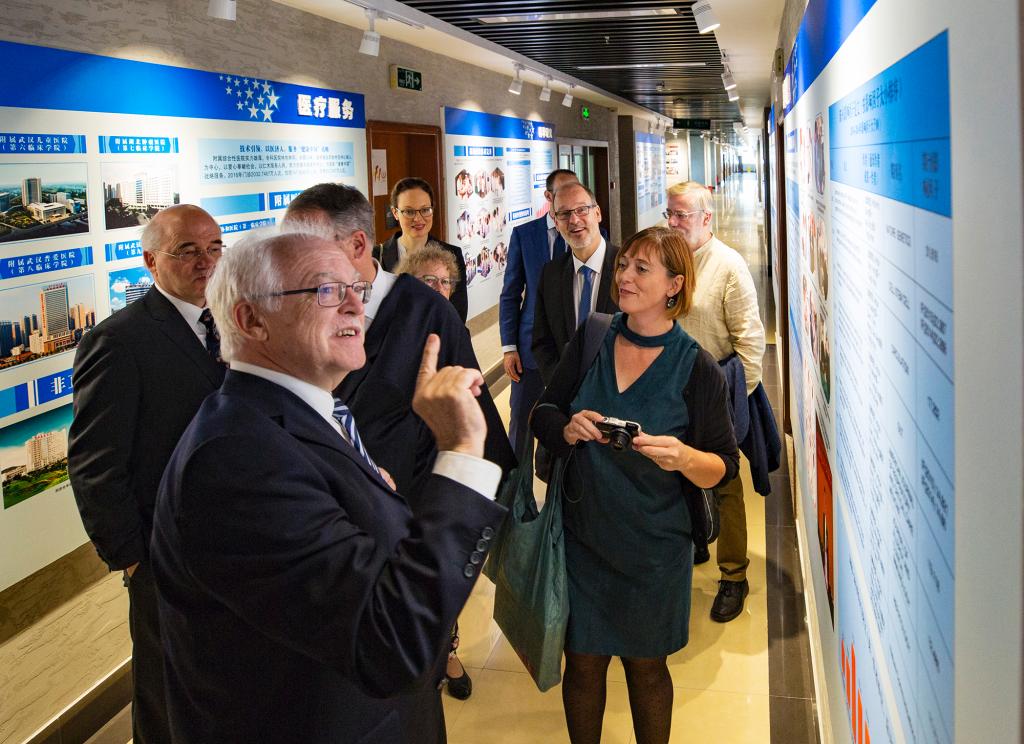
Chaired by Prof. MAO Ying from Xi’an Jiaotong University, Prof. LIN Feng, Party Secretary from Zhenjiang Junior College, delivered a speech titled“Whole Specialties and Healthcare Service Integrated”, with another 7 experts and professors actively expressing their opinions in the first panel themed“Medicare Service Network and Development on Grass-Roots”in regarding the present situation, structure and mechanism of primary health services. Then, chaired by Prof. FENG Zhanchun, the Dean of the School of Medicine and Health Management, the second panel discussion themed“The Promotion Strategy of Capacity Building in Primary Healthcare Service”continued. Prof. LI Shixue, the Dean of the School of Public Health of Shandong University, gave a report titled“The Good Practice and Experience of Upgrading Medicare Service Capacity of Primary Health Care Institutions in Shandong Province”, another 7 experts and professors engaged in heated exchange and discussion enthusiastically.
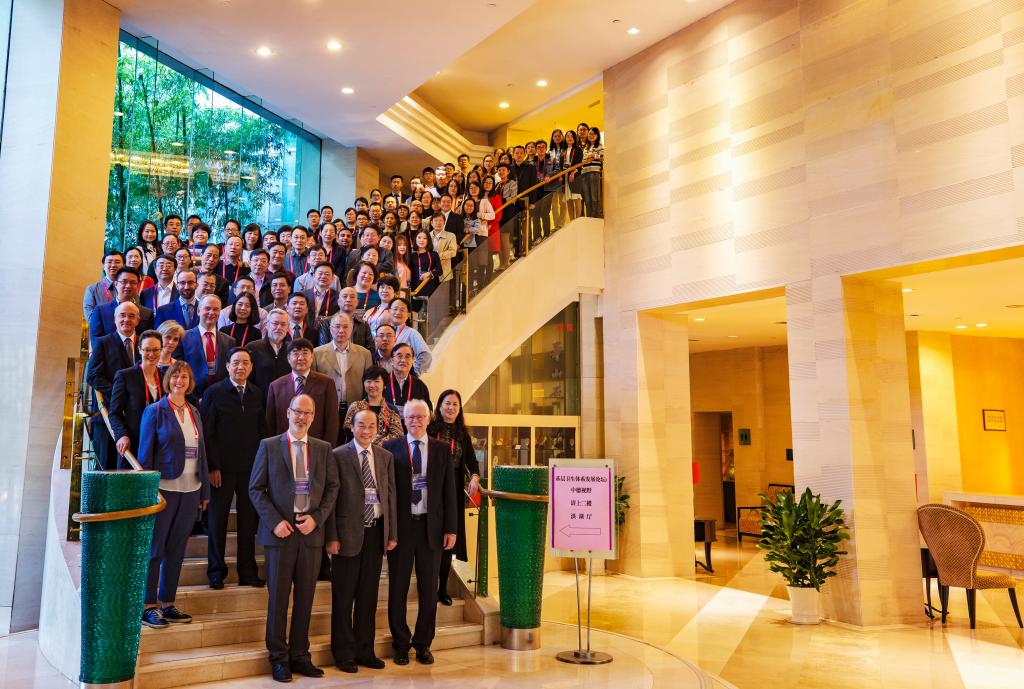
In the end,Prof.Hoffmann,Chairmanof theForum,made aclosingremarks of the meeting and expressed his best wishes forfurther collaboration between the two colleges in terms of the similarity and appeals of grass-roots medicare services in China and Germany.
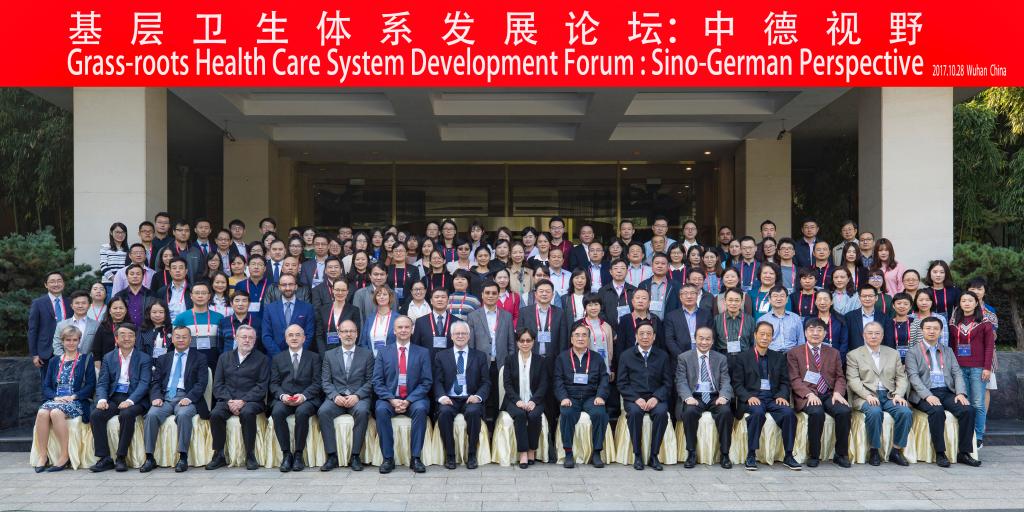
Through the Forum, the experts and scholars all agreed that a sustainable and efficient grass-roots health care system will be the basis for addressing common problems and challenges internationally.The discussions andsuggestionsin this forumbrought new ideas and methods,as well asinspirationsingrass-rootshealthcaresystem researchandopened widewindows to conductscientificresearchin the field.
